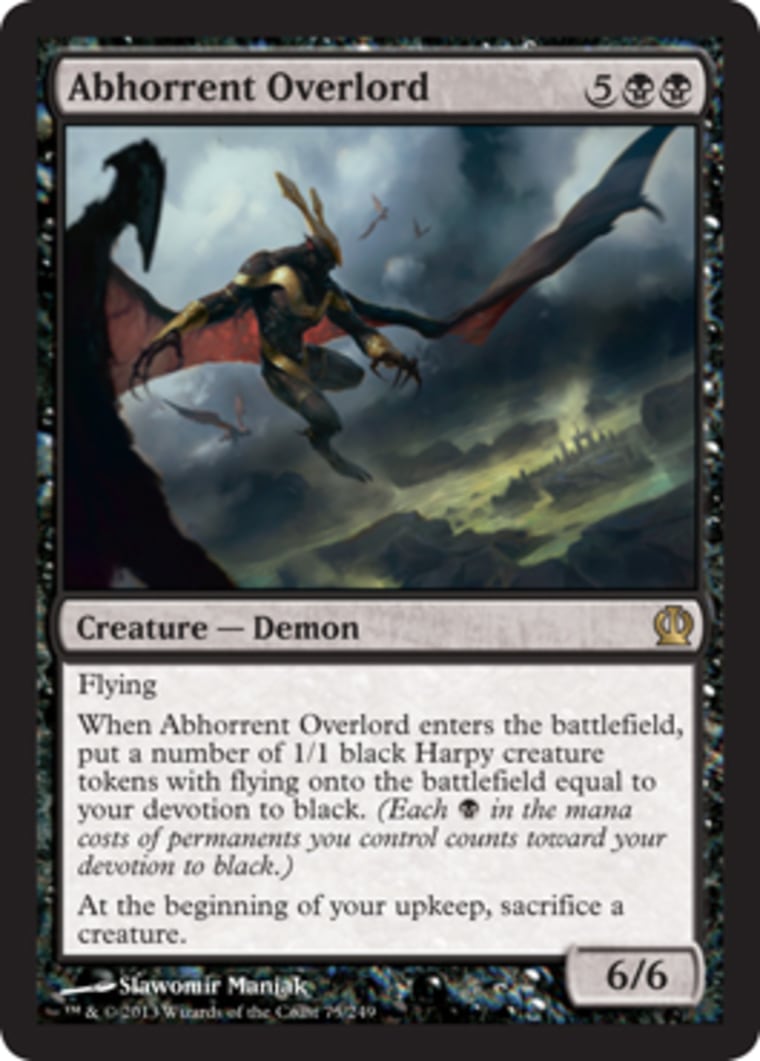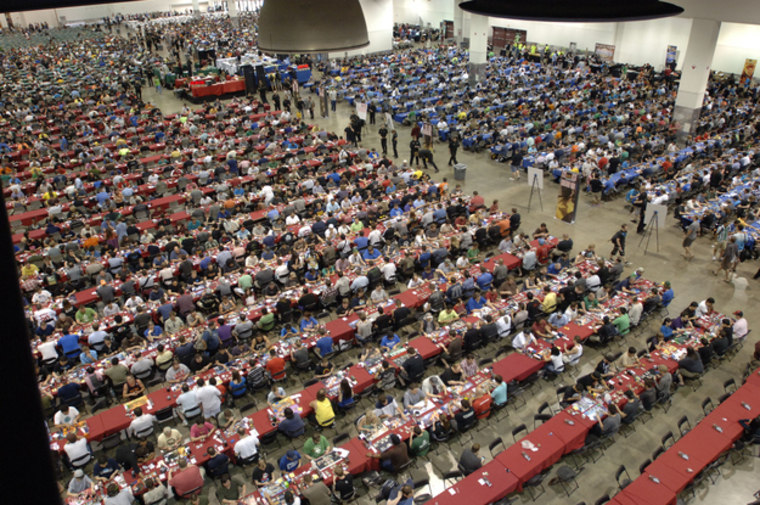This Labor Day weekend, tens of thousands of gamers will descend on the Penny Arcade Expo (PAX) in Seattle to check out the latest and greatest from their favorite game studios. Like Comic-Con, the various PAX conventions are a mammoth celebration of all things nerdy. But even for seasoned gamers, there's a sight at each PAX that some might find surprising: rows upon rows of tables where people sit not to play any video game, but cards.
I'm talking about "Magic: The Gathering." If you don't frequent comic book shops, "Magic" might sound like a relic from either your or your kids' middle-school years. And for a game first launched in 1993, "Magic" might even strike modern gamers as exceedingly low tech compared to the lush 3-D graphics of the Xbox 360 or PlayStation 3. But thanks to the resources of "Magic" owner Hasbro and a small handful of smart moves into digital media, that's not really the case.
"Magic is bigger than it's ever been," Mark Purvis, global brand director for "Magic," told NBC News. Looking at the numbers behind "Magic: The Gathering" today, it's hard not to take him at his word. With more than 13,000 unique cards made, "Magic" now has 12 million active players globally, and Hasbro said that it's the biggest brand in its $1.2 billion games portfolio. In its 2012 annual report, the company said that "Magic's" revenue has grown by 25 percent or more in each of the previous four years.
"It's off the charts," Sean McGowan, an analyst at Needham & Co., told NBC News. "I've been covering the toy industry for 27 years, and in the last 15, it's maybe had two up years. But this property...at 20 years, I don't know if it's ever had a down year. The growth in 'Magic' has been bigger than the growth in Hasbro."
'Careful thinking at every step'

Keep in mind that Hasbro is also the company behind "Transformers," "My Little Pony," and "G.I. Joe," action figures, not to mention "Scrabble" and "Monopoly" — which holds the Guinness World Record for best-selling board game ever. So what is it about this seemingly arcane card trading game that keeps drawing in new players and keeps the old ones coming back for more?
"It's a game that requires careful thinking at every step before and during a game, from evaluating cards to put in your deck, to choosing which ones to play, and that appeals to me," Sam Werbalowsky, 24, told NBC News. The program manager for an online pharmacy verification website said he has been playing "Magic" since he was 13.
McGowan attributed much of its current success to what Hasbro has chosen not to do with the brand since it scooped it up in 1999 with the acquisition of "Magic" creator Wizards of the Coast.
"The best thing they did was leave it alone," McGowan said. "And they did leave it completely alone for several years." But even when Hasbro started to tinker with it by introducing digital versions of the game, such as 2002's "Magic: The Gathering Online," and 2009's "Duels of the Planeswalkers," which is now available for the PC and major gaming consoles in addition to the iPad, Hasbro didn't try to push fans to accept consoles over cards.

This makes "Magic" one of the rare examples of an entertainment product that's continued to thrive not in spite of its trappings of "old media," but because of them. Purvis of Hasbro wouldn't give specific statistics on how many players play "Magic" on a console or tablet versus at the table, but even he admitted that when it comes to playing "Magic," "face to face is still the biggest experience that you can have."
And for many players like Werbalowsky, that's still the case. Playing the game two to four times a week at the Twenty Sided Store in Brooklyn, he estimates that he has spent between $500 and $750 on the game in the last year alone, and expects to spend the same amount next year.
For McGowan, players like Werbalowsky make up the high-grossing "army of nerds" that helps "Magic" grow year after year. But they can be a blessing and a curse, scaring away casual players who don't have the time or the money to become that involved.
Just take James DiGioa, 26, a New Yorker who works in social media for a business website. He said that he'd all but abandoned "Magic" after middle school until a friend of his invited him to play again earlier this summer. Does this mean he's going back to the cards?
"Well, it costs time and money to get a good enough handle on the game, and there are just other things I'd rather do," DiGioa told NBC News. So maybe he's not ready to put down $750. But would he play it again now?
"Yeah, definitely," he said.
Yannick LeJacq is a contributing writer for NBC News who has also covered technology and games for Kill Screen, The Wall Street Journal and The Atlantic. You can follow him on Twitter at @YannickLeJacq and reach him by email at: Yannick.LeJacq@nbcuni.com.
